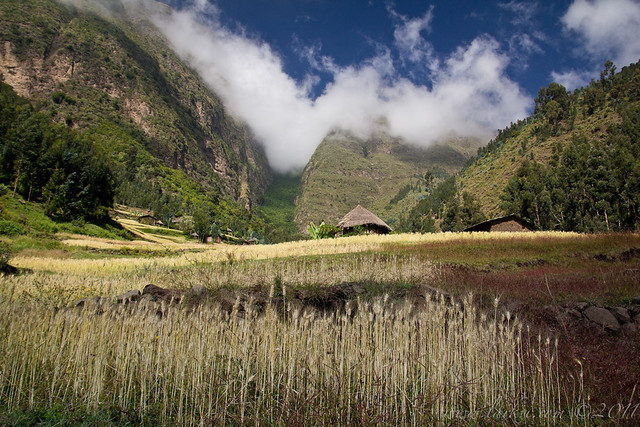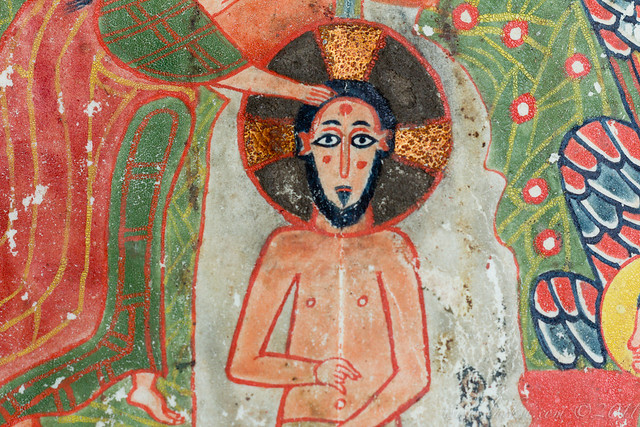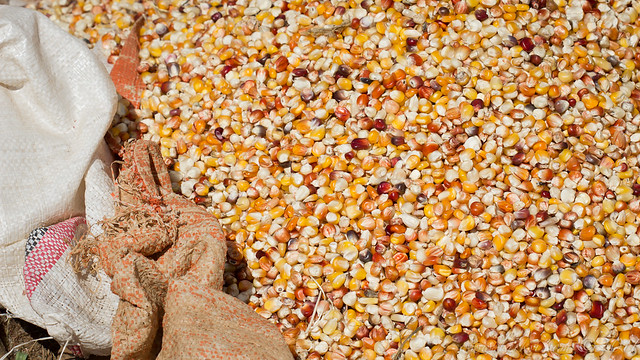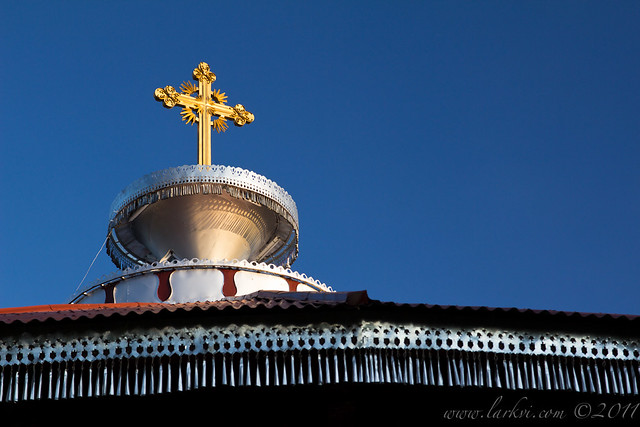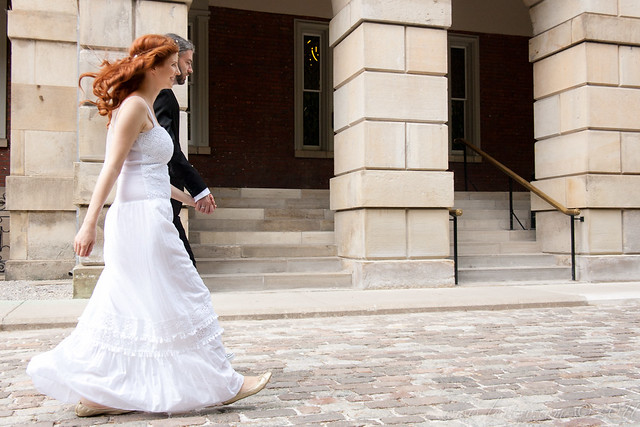As we were driving along the China Road (between Bahir Dar and Woldia), we passed a spring and then turned to find this juxtaposition of farmed land, homes, and peaks in clouds. It was a welcome respite from the first part of the drive, which had been relentlessly clear and sunny.
Tag: larkvi
The Baptism of Christ, Kebran 1 Gospels, Kebran, Ethiopa
Maize, Market, Mekane Eyesus, Ethiopia, 2011
Rooftop Cross, Hayq Estifanos Church, Wollo, Ethiopia, 2011
The golden cross on the roof of Hayq Estifanos (The Church of St. Stephen at Hayq). Hayq Estifanos is a monastic community on a peninsula in Lake Hayq (Lake Lake) in the Wollo area of Ethiopia. It was an important early site of monasticism South of Tigray and today is a pleasant place birds sing and monks grow crops.
Jackie and Ben’s Wedding
Recently, I had the good fortune to photograph Jackie and Ben’s wedding. We had fun taking formals in front of Osgoode Hall, before heading to a great Toronto institution–the chip truck, for their first meal as a married couple. Here’s the first instalment.
Signing the marriage contract. . .

Kissing in front of a beautiful rosebush in the gardens of Osgoode Hall. . .

Ben groaned when I motioned toward the pillars, anticipating that I wanted to take a peekaboo shot. I hope the result changed his mind. . .

Papyrus Investigation, Bahir Dar, Ethiopia, 2009
I realize this is not the most flattering picture, but I thought it went well as an illustration of one of my smaller investigations.
The actual strips of papyrus that I cut (by drawing the knife along the whole length of the stem, as the ones where I attempted to ‘unroll’ it were an unsatisfactory mess).
———-
While in Bahir Dar, with access to the plentiful papyrus supplies of Lake Tana, I took the opportunity to do a little bit of experimental investigation into the debate on how papyrus was manufactured. Specifically, I was interested in the practicalities of Hendricks’ reconstruction of the method of papyrus manufacture by means of a ‘peeling’ or unrolling process, working the papyrus from the outside to the inside, all in one piece, which is then flattened in pressing. (see Hendricks, ‘Pliny, Historia Naturalis XIII, 74-82 and the Manufacture of Papyrus’ in Zeitschrift für Papyrologie und Epigraphik XXXVII (1980) 121–136). I cut my way through a dozen stalks, and while I very easily got a handle on creating usable segments by means of a kind of shaving/splitting process with the knife, I found that the pith resisted being ‘peeled’ or unrolled in any way, and could not satisfactorily make the turns at the points of the triangular stem. In addition to being difficult, it was extremely slow, and while efficiency is not necessarily a particularly strong argument for reconstructing traditional production practices, I came away from the experiment with a greater appreciation for the feel of papyrus pith and the implications of different methods of cutting it. I am disinclined towards the Hendricks method at present, but see Wallert’s article (Wallert, ‘The Reconstruction of Papyrus Manufacture: A Preliminary Investigation’ in Studies in Conservation, Vol. 34, No. 1, (Feb., 1989), pp. 1-8), suggesting that there may be physical characteristics that can solve the question independent of the opinions of modern scholars engaging in experimental archaeology.
2009 Zombie Walk (Special Edition), Toronto, Canada
I was an especial fan of the zombie baristo!
Ladies of the 2009 zombie walk. The two on the left are Jessica Rabbit and Betty Boop.
CMS colleagues
—–
Long-delayed photos from the 2009 zombie walk organized in the autumn to coincide with TIFF (The Toronto International Film Festival). I am so long in getting them out, I thought I would post many at once, and it was a good project to practice while learning Pages on my new iMac.

